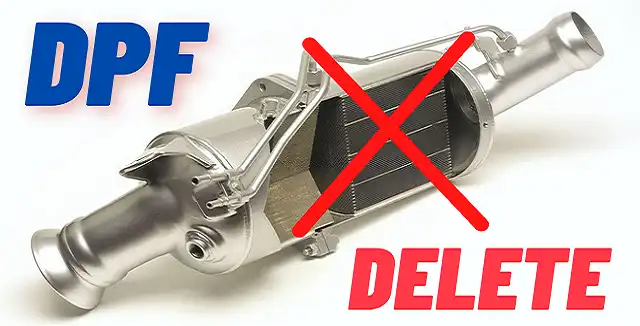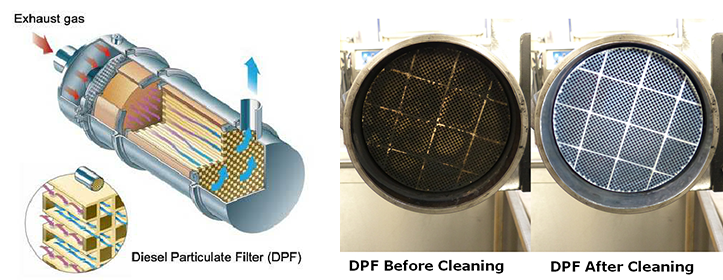When it comes to DPF’s (Diesel Particulate Filters) there can be a lot of frustration and confusion about what maintenance is and isn’t allowed. While a clean and properly maintained DPF can help reduce emissions, a DPF that’s blocked or in poor condition can reduce overall engine performance.
No matter the issue, deleting DPF’s on your truck is illegal and not worth it if you’re aiming to remain emissions compliant in the United States. Of course there’s a caveat to this too. DPF deletion is not allowed in The United States, yet Canada has no such regulations for its truckers.
According to the United States Environment Protection Agency:

“The CAA prohibits anyone from tampering with an emission control device on a motor vehicle by removing it or making it inoperable prior to or after the sale or delivery to the buyer. A vehicle’s emission control system is designed to limit emissions of harmful pollutants from vehicles or engines. EPA works with manufacturers to ensure that they design their components with tamper-proofing, addresses trade groups to educate mechanics about the importance of maintaining the emission control systems, and prosecutes cases where significant or imminent harm is occurring.”
That essentially means if you’re dealing with a DPF deletion business, they’re relying on truckers who aren’t emissions compliant. If you’re an american company falling into the latter, there’s more than one reason to be concerned.
For starters, the fines you could face for running fleets of trucks without proper DPF’s can be upwards of hundreds of thousands of dollars. On top of that, if you’re caught without the propers systems, you’ll have to spend a lot more than that to outfit all your trucks with the proper diesel particulate filters.

For most, the trouble outweighs the gain. As seen in the incident of November 2018 involving the carriers Schneider National and Old Dominion. Both companies were required to pay a combined total of $225,000 in penalties. They also had to spend $575,000 on air filtration systems for schools in the Los Angeles area.
Schneider was quick to respond to the violations, and provided Freight Waves with this statement:
“Once we were apprised of the situation we immediately took the necessary steps to resolve the issue. We remain an industry leader in sustainable operations. Our green commitment dates back 40 years, and we have a long history of working on energy efficiency and fuel conservation.”
Even with large carriers going to great lengths to avoid violations, why is DPF deletion still a problem? According to Performance Muffler,
“DPF, especially when clogged, affects airflow and causes delays in the exhaust process. Additionally, it affects the overall engine performance and power. When you remove the DPF, fuel flows better into the engine, boosting power generation and pressure. DPF delete is a sure way to increase engine horsepower.”
Carriers frustrated with efficiency or maintenance might suggest doing a DPF delete to improve engine performance. While the decision is only up to the individual, we cannot stress enough why the ends won’t justify the means when it comes to tampering with DPF systems.
If you’re looking for DPF parts or replacements, consider using TruckPartsInventory.com. Just enter what you’re looking for into the search bar at the top, it can be a part number too. If you still need help just give us a call!
